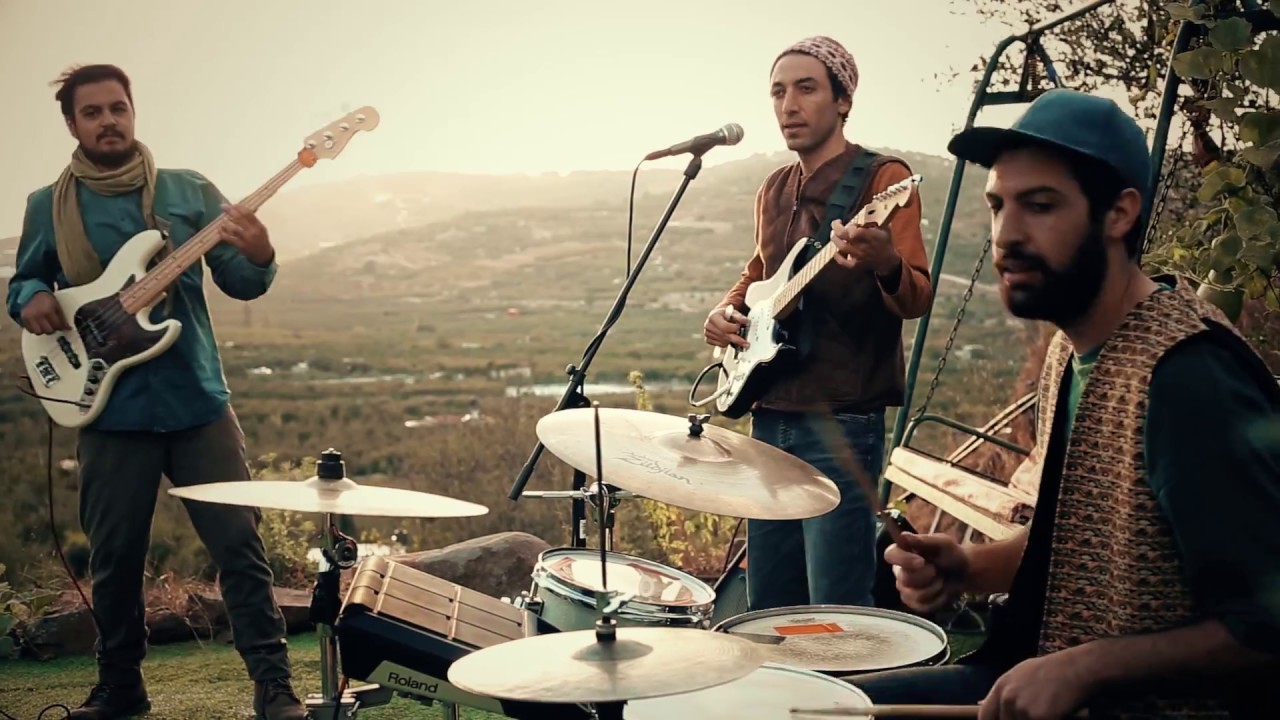Hasan Nakhleh, the lead singer and guitarist of TootArd, said in a recent interview that his band does not sing about politics because it’s “too complicated”. But politics are difficult to evade when you hail from Majdal Shams: a village in the Israeli-occupied Syrian region of Golan Heights.
This is all too obvious in the title of TootArd’s international album, Laissez-Passer, released on Glitterbeat Records. Laissez-Passer refers to the travel documents that entitle Syrians in Golan to permanent residency in Israel, but also classify their nationality as “undefined”. At first glance then the album’s title invokes loss, insecurity and uncertainty. In actuality, Laissez-Passer is a celebration of finding one’s identity in music.
TootArd (Arabic for strawberries) are a self-defined mountain rock reggae band, known for previous releases such as ‘Ruh Bladi’ and ‘Kl El Nas’ on their reggae-centric 2011 album, Nuri Andaburi. The band are notorious for having audiences on their feet and dancing for an entire set: between Hasan’s urgent vocal delivery, his brother Rami’s bouncing bass and Amr Mdah’s jubilant saxophone, it’s easy to see why. Drawing on a variety of influences, TootArd seamlessly fuses sounds from the Middle East, West Africa and Jamaica into one carefully crafted whole.
For the most part Laissez-Passer is characteristically upbeat and almost triumphant. The eponymous opening track, for example, confronts the band members’ statelessness head-on: “No nationality, no borders, if you ask me I’m an oud player.” Despite the melancholic subject matter, the song is driven by uptempo percussion and groovy guitar riffs. ‘Oya Marhaba’ too is a buoyant ode to ska, complete with a funky bassline that only really comes to prominence towards the end of the track.
At points the album lulls you into welcome contemplation. ‘Nasma Jabalyia’ is a capacious easy-listening number interspersed with lilting offbeat reggae. It is a deliciously rich pause for breath amid the otherwise relentless festivities of Laissez-Passer.
TootArd have often cited Tinariwen, a group of Tuareg guitar rockers, as a major influence, and this is palpable throughout the new album. Indeed electric guitar riffs are one of the record’s most striking features. This is particularly true on tracks like the pining yet cautiously optimistic ‘Syrian Blues’, which deftly shifts from the blues riffs to the rast scale (one of the most commonly used scales in Arabic music). That song title paired with the track’s arresting ambience evokes vast swathes of land and the yearning of a stateless people. Expansive, brooding but always sanguine.
TootArd’s first international album is a wonderfully varied listen. In both sound and subject matter it seems to be an acceptance of the fact that TootArd’s identity is inherently political. Regardless though, they find joy in their music and, borders aside, Laissez-Passer says there is always a reason to dance.



